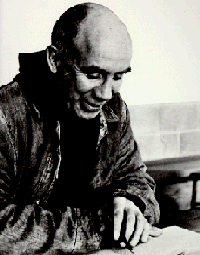Some excerpts from an interesting article in today's Wall Street Journal:
In Volatile Mideast,
U.S. Finds a Use
For Old Autocrats
As Elections Boost Islamists,
Democracy Push Falters
In Egypt, Saudi Arabia
Red Carpet for Mubarak Heir
By NEIL KING JR. and YASMINE EL-RASHIDI
August 8, 2006; Page A1
snip ><
Last summer, Secretary of State Condoleezza Rice delivered an emotional speech in Egypt now regarded as a high-water mark of the Bush administration's push for democracy in the Middle East.
"There are those who say that democracy leads to chaos or conflict or terror," she told a packed house at Cairo's American University in June 2005. "In fact, the opposite is true: Freedom and democracy are the only ideas powerful enough to overcome hatred and division and violence."
Today, the question confronting Ms. Rice is this: How much hatred, division and violence can the region bear en route to this promised new era?
With radicalism on the rise and battles flaring from Beirut to Baghdad to Gaza, the Bush administration's quest for democracy in the Middle East is literally under fire. So while Ms. Rice portrays the fighting in Lebanon as "the birth pangs of a new Middle East," the administration is also showing new eagerness to maintain pillars of the old Middle East -- particularly America's steadiest allies in the region, the autocracies of Egypt, Jordan and Saudi Arabia.
snip ><
The violence in Lebanon also highlighted what critics say are contradictions in the Bush democracy quest. For one, the administration now has to rely on autocratic leaders as it pursues its goal of ridding the region of autocratic leaders. Moreover, the region's worst unrest is in the three places Washington has pushed hardest for democratic change: Iraq, Lebanon, and the Palestinian territories.
Recent elections in all three places have led to a strengthening of strongly Islamic parties, including Hezbollah in Lebanon, which picked up 14 seats in the 128-seat Lebanese parliament, and Hamas in the Palestinian territories, which swept January elections and now controls the government. The results also enhanced the influence in all three places of Iran's hard-line Shiite leadership, much to the alarm of its rivals in the Sunni capitals of Cairo, Amman and Riyadh.
snip ><
Early in the democracy project, the administration had cause for encouragement despite an array of skeptics. Palestinians picked a moderate, Mahmoud Abbas, as their president in January 2005. Iraqis risked attacks to line up to vote in two nationwide elections, first in January 2005 and then last December. And when Syria pulled troops out of Lebanon, after years of interfering in its domestic politics, the country held its first free election in decades.
It also became clear that elections didn't immediately enhance U.S. interests or create stability. That is partly because Islamic groups offered by far the most organized and effective opposition to the old leaderships. The biggest shock came with Hamas's victory in the Palestinian parliamentary elections. The Bush administration, after pressuring Israel to allow Hamas to compete, was stunned by the results.
snip ><
Amid restrictions on who could run and how candidates could campaign, Mr. Mubarak secured a fifth term as president [of Egypt] with relative ease. But the parliamentary election -- conducted in three rounds in September, November and December -- was plagued with problems. Riot police barricaded some voting stations, forcibly preventing voters from entering. Human-rights groups and the Egyptian judiciary alleged that ballot-rigging was rife.
Violence intensified approaching the second round of elections in November. In the end, the Muslim Brotherhood's candidates won 88 seats in parliament, up from 17 in the 2000 election, forming the largest single bloc of opposition seats in modern Egyptian history. Mr. Mubarak's National Democratic Party took 230 seats of 454. While the ruling party retained its majority, for many the elections indicated the pro-Islamist direction Egypt might turn if left to its own devices.
URL for this article:
http://online.wsj.com/article/SB115500092354229453.html?mod=hps_us_pageone
<>< TM
Tuesday, August 08, 2006
Subscribe to:
Post Comments (Atom)


No comments:
Post a Comment